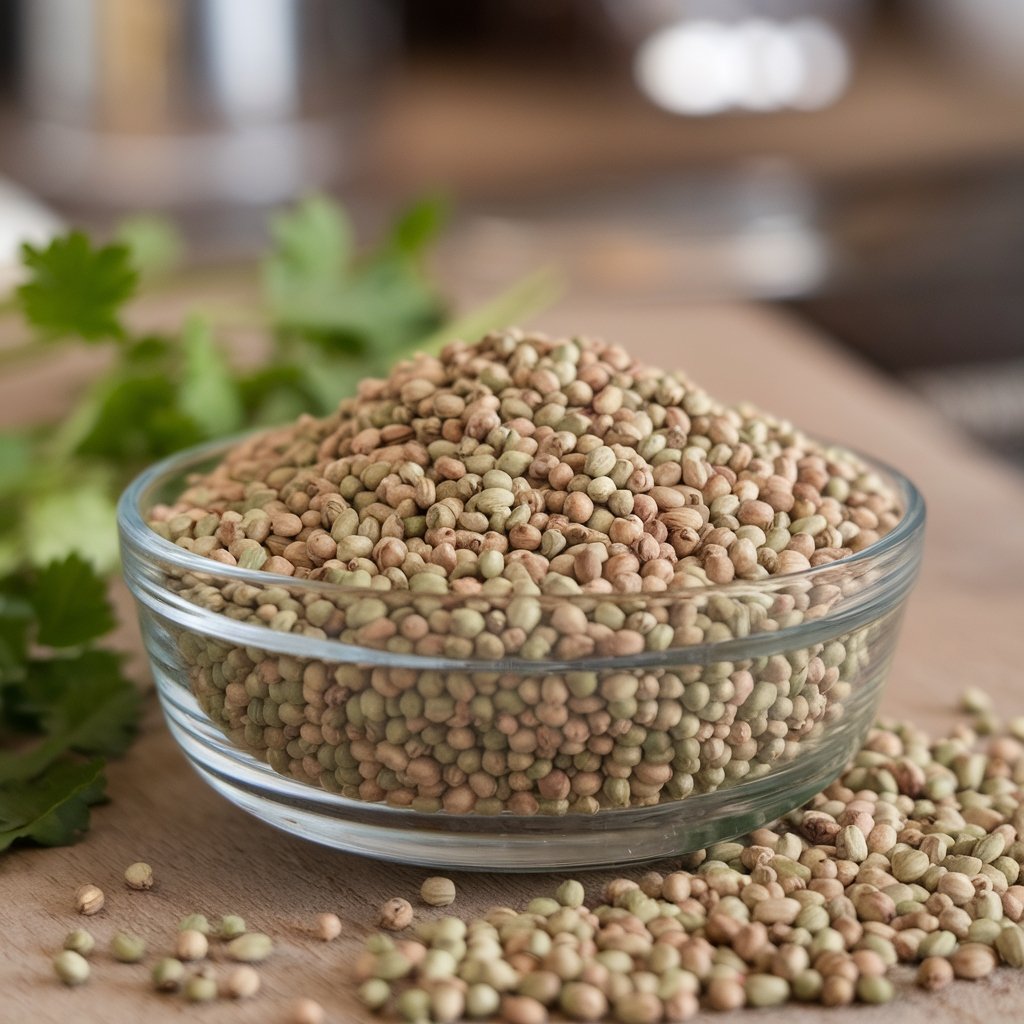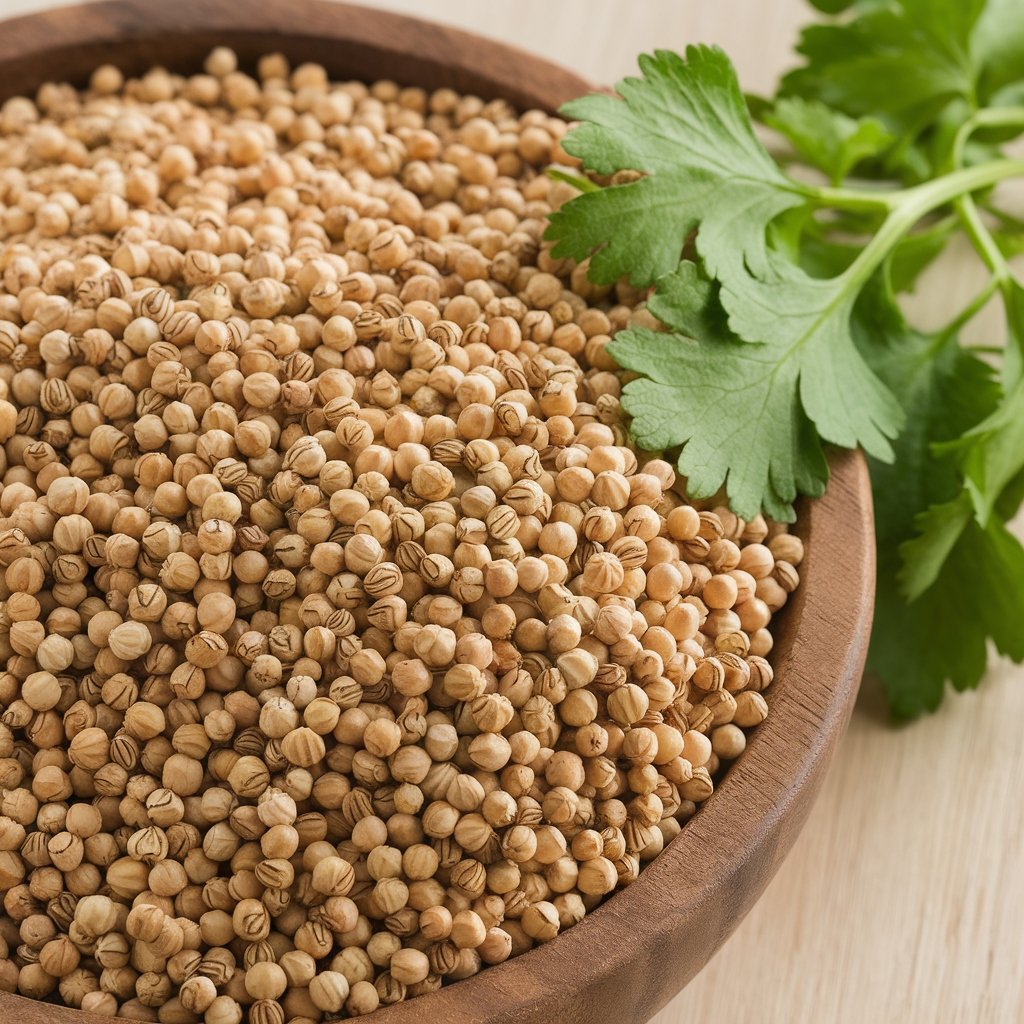Coriander seeds are a culinary treasure, celebrated across kitchens worldwide for their aromatic, citrusy profile and rich history. Whether you’re a seasoned chef or a curious beginner, understanding the versatility of coriander seeds can elevate your cooking and deepen your appreciation for global cuisines. Let’s dive into the fascinating journey of this timeless spice, exploring its origins, uses, and culinary charm.
What Are Coriander Seeds?
Coriander seeds are the dried fruits of the coriander plant, scientifically known as Coriandrum sativum. These small, round seeds boast a warm, nutty flavor with subtle citrus undertones, making them a staple in various dishes. Unlike the plant’s fresh, green leaves (commonly referred to as cilantro), coriander seed possess a unique flavor profile that thrives in dried and ground forms.
The Rich History of Coriander Seeds
The journey of coriander seed spans thousands of years, tracing back to ancient civilizations:
- Origins in Antiquity: Coriander was cultivated as early as 2000 BCE in regions like the Mediterranean and Southwest Asia.
- Historical Significance: The seeds were cherished in Ancient Egypt for culinary and medicinal purposes, and they were even found in King Tutankhamun’s tomb.
- Global Spread: Coriander seed traveled through trade routes to India, China, and Europe, eventually becoming a cornerstone in many global spice blends, including garam masala and ras el hanout.
Health Benefits of Coriander Seeds

Coriander seeds are more than a flavorful addition; they offer numerous health benefits:
- Digestive Aid: Rich in dietary fiber and essential oils, they help combat bloating and indigestion.
- Antioxidant Powerhouse: Packed with antioxidants, coriander seed help reduce oxidative stress.
- Blood Sugar Regulation: Studies suggest that coriander seed may help lower blood sugar levels by enhancing insulin activity. Incorporating spices like coriander into your diet is a natural way to manage glucose levels. Learn more about other Spices to Reduce High Blood Sugar Naturally and how they contribute to overall health.
- Anti-inflammatory Properties: Their natural compounds can reduce inflammation, making them valuable for managing arthritis and other chronic conditions.
Culinary Uses of Coriander Seeds
Coriander seeds have an unmatched versatility that spans savory and sweet dishes. Here’s how they enhance cooking:
As a Whole Spice
- Add whole seeds to soups, stews, and curries for a slow infusion of flavor.
- Lightly toast the seeds before use to release their oils and intensify their aroma.
Ground for Maximum Flavor
- Grind seeds into a fine powder for spice rubs or baking recipes.
- Incorporate ground coriander into marinades to enhance meats and vegetables.
In Global Cuisines
- Indian Cuisine: Essential in curries, chutneys, and lentil dishes.
- Middle Eastern Cuisine: A key component in spice blends like za’atar and dukkah.
- Mexican Cuisine: Adds depth to salsas and mole sauces.
If you love discovering ways to include nutrient-packed seeds in your meals, don’t miss our article 10 Ways to Use Pumpkin Seeds for Healthy Meals for even more inspiration.
How to Select and Store Coriander Seed

Choosing Quality Seeds
- Look for seeds with a uniform size and golden-brown color.
- Fresh seeds will have a strong, citrusy aroma.
Storage Tips
- Store whole seeds in an airtight container in a cool, dry place to preserve their potency for up to a year.
- Ground coriander loses its flavor quickly, so grind seeds as needed for the best results.
Cooking Tips to Maximize Flavor
Toasting Seeds
- Place coriander seed in a dry skillet over medium heat.
- Stir continuously until they darken slightly and emit a nutty aroma.
- Crush the toasted seeds with a mortar and pestle for a fresher taste.
Balancing Flavors
- Pair coriander seeds with cumin for earthy undertones.
- Add a pinch of sugar when using coriander in savory dishes to amplify its natural sweetness.
Fun Facts About Coriander Seeds
- In ancient Greece, coriander seed were used to flavor wines.
- The seeds were believed to have aphrodisiac properties in medieval Europe.
- Coriander is one of the oldest herbs mentioned in historical texts, including the Bible.
Coriander seeds are more than just a spice—they are a culinary journey through time and culture. Their robust flavor, health benefits, and versatility make them a must-have in any kitchen. Whether you’re experimenting with global recipes or seeking a natural way to enhance your meals, coriander seeds are the perfect choice.
Try incorporating coriander seed into your next dish and let their aromatic magic transform your cooking. Don’t forget to share your creations and explore more about spices on our blog. Happy cooking!
